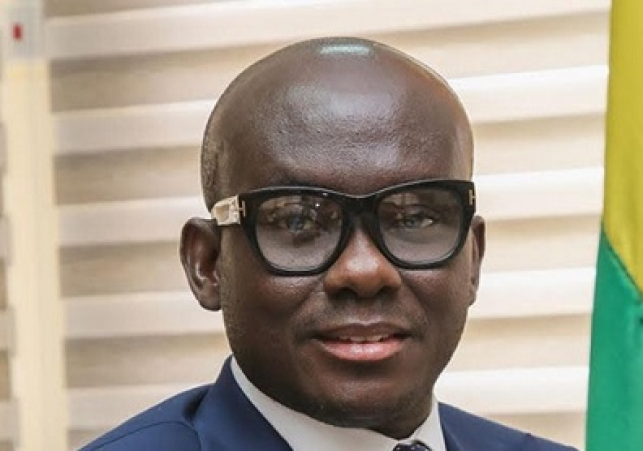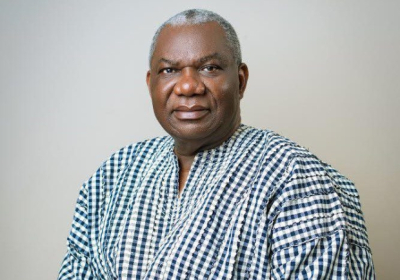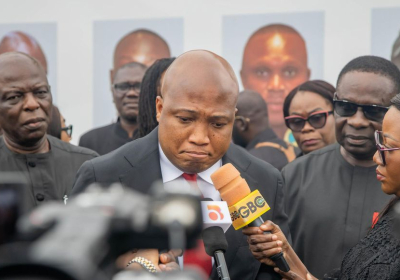Ghana Faces Over $9 Billion in Arbitral Claims, Attorney General Discloses
Mr Godfred Yeboah Dame - Attorney-General and Minister of Justice

Ghana’s Attorney-General and Minister of Justice, Godfred Yeboah Dame, has disclosed that the country's economy narrowly avoided collapse due to significant arbitration claims lodged against the government over the past four years, amounting to a potential financial drain of $9 billion. He explained that these claims, had they been upheld, would have dealt a severe blow to the nation's financial stability, underscoring the crucial role his office played in defending Ghana’s interests in various international and domestic cases.
At the recent Public Sector Law Conference held in Accra on November 5, 2024, Mr. Dame described a range of cases his office had successfully defended, ultimately saving the country billions. According to Dame, these efforts were not only financially critical but have broader implications for the sovereignty and economic resilience of Ghana.
Dame indicated that, in the past four years, the value of arbitral cases against the Republic had exceeded $9 billion.. He cited multiple high-profile cases to illustrate this staggering financial threat, beginning with a claim by ENI Viton, a major multinational energy corporation. ENI initially lodged a claim of $7 billion against the Ghanaian government, following a dispute over energy agreements. Through Ghana’s legal defense efforts, however, the claim was ultimately reduced to $915 million before being dismissed entirely by the arbitration tribunal. Dame noted that even this reduced amount, had it been awarded, could have crippled the Ghanaian economy.
He further emphasized the hidden dangers of arbitration, particularly for developing countries like Ghana. While arbitration is often praised for providing a neutral and efficient forum for resolving international disputes, Dame warned that if these cases are not carefully managed, they can jeopardize the economic stability of vulnerable nations. He asserted, "There are specific conspicuous risks that I believe arbitration presents for Ghana and the developing world that appear to be neglected." Whilst arbitration is touted to assure neutrality, privacy, and efficiency, arbitral claims filed against the government, if not diligently managed, tend to collapse the entire Ghanaian economy."
Highlighting a variety of other cases, Dame pointed out that Ghana had faced litigation from major international players, each with claims capable of substantially impacting the economy. For instance, in 2020, Ghana was involved in arbitration with the International Finance Corporation (IFC), the investment arm of the World Bank, which had invested heavily in Ghana’s energy sector. In 2019, the Ghana National Petroleum Corporation (GNPC) found itself in a legal dispute with Aker Energy, a Norwegian company, over an exploration agreement in Ghana’s offshore oil fields. Meanwhile, in 2018, a dispute arose with Kosmos Energy over tax provisions related to offshore oil exploration. Each of these cases represented a potential financial burden of hundreds of millions of dollars, according to Dame.
He further underscored the magnitude of these arbitration claims by sharing that, collectively, the amounts in dispute totaled over $9 billion in just four years. Mr. Dame credited his office’s strong legal defenses with averting a catastrophic impact on Ghana’s economy. "In point of fact, over the past four years, the value of arbitral claims against the Republic has been over US$9 billion," he reiterated, elaborating on several cases as examples:
1. **ENI Viton’s $7 Billion Claim** - Initially a substantial $7 billion, ENI Viton’s claim against Ghana was ultimately reduced to $915 million before being dismissed entirely. According to Mr. Dame, this outcome prevented a financial catastrophe for Ghana.
2. **Cassius Mining Ltd Claim** - Another significant case involved Cassius Mining Ltd., which filed a claim worth approximately $300 million against Ghana. This claim, though less than ENI Viton’s, still represented a substantial financial threat.
3. **GCNet Claim** - Ghana Community Network Services Limited (GCNet) pursued an arbitral claim of over GHC 4 billion (about $250 million), which would have further strained the country’s finances had it succeeded.
4. **Eland Oil & Gas Claim** - Recently, Eland Oil & Gas, an international company, filed a claim against the Ghanaian government for a minimum of $320 million, reflecting yet another substantial threat to Ghana’s fiscal stability.
In addition to international arbitration cases, Dame revealed that his office had successfully defended against domestic claims totaling over GHC 10 trillion. This defense effort, according to Dame, has protected the nation’s financial resources from substantial payouts that would have been economically devastating.
As he concluded his address, Mr. Dame stressed the importance of vigilant legal defenses and strong government representation in arbitration cases, urging for better policies and strategies in handling disputes that could risk Ghana’s financial health. He emphasized that while Ghana has successfully defended these claims, the risks remain high, particularly for other developing nations facing similar legal challenges. He reiterated his commitment to safeguarding Ghana’s economic sovereignty, maintaining that the Attorney-General’s office will continue to take a proactive approach to protect the nation from such legal and financial risks.







